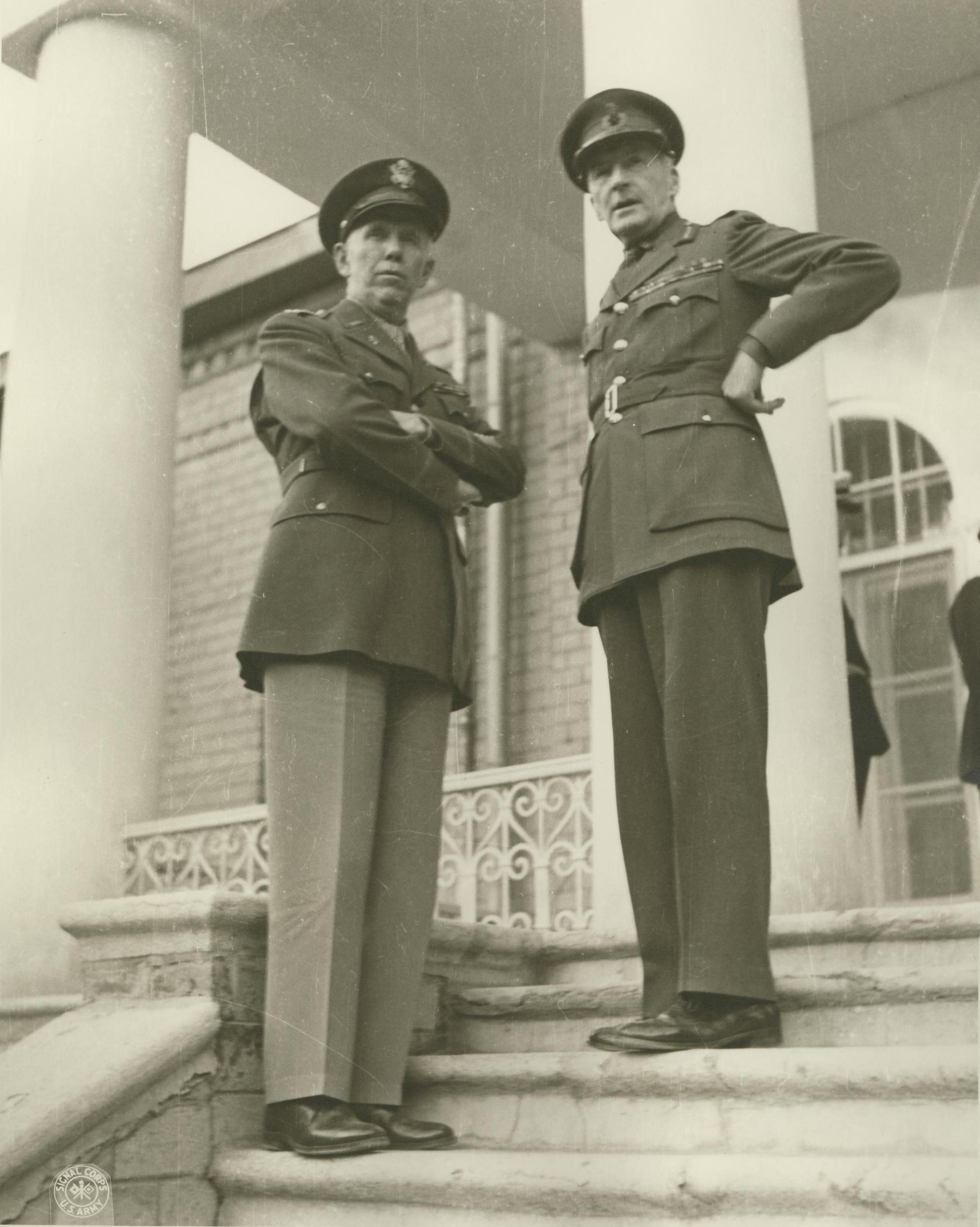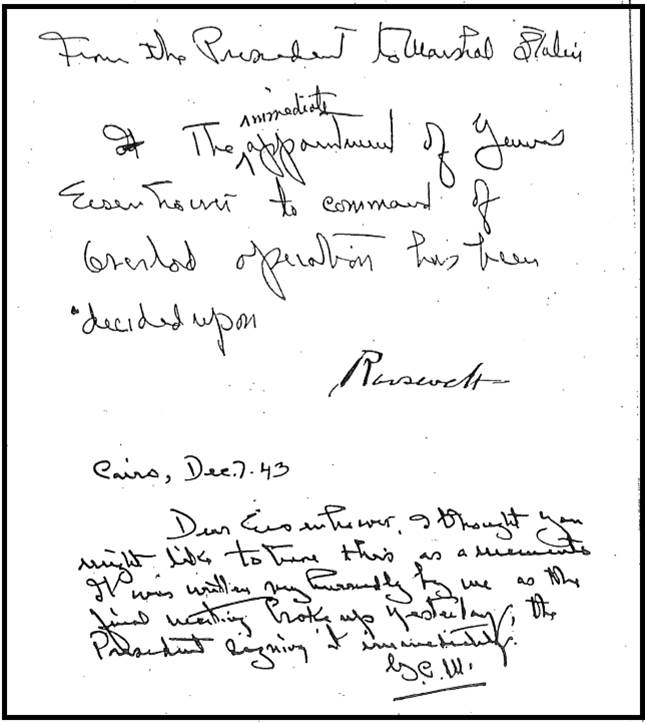Note: This article was originally published November 3, 2017.
The Tehran Conference, codenamed EUREKA and held November 28-December 1, 1943, was a top-secret meeting of the “Big Three”- British Prime Minister Winston Churchill, American President Franklin D. Roosevelt, and Soviet Premier Josef Stalin. This was the first time the three met to negotiate military and diplomatic solutions to the war.
Negotiations concerned the unconditional surrender and occupation of Germany, the future of Poland, and the assurance Roosevelt needed from Stalin that the smaller republics of Latvia, Lithuania and Estonia would be absorbed into the Soviet Union only if the citizens of each republic voted for it. Stalin, in what could be considered the first inklings of the Cold War, stressed that any vote would happen “in accordance with the Soviet constitution,” and that he would not allow any international meddling or control of the elections. Roosevelt, eager to have Stalin agree to enter the war against Japan when Germany was defeated, approved, and was later said to have conceded too much to Stalin.
The major discussion during the conference centered on the plans for a cross-channel invasion, codenamed OVERLORD. Stalin insisted on knowing who would command it and when the operation would take place. Stalin offered to launch a simultaneous offensive preventing the Germans from transferring troops from the eastern to the western front. A date of May 1944 was set. At the conclusion of the conference Stalin was under the impression that General Marshall would lead OVERLORD.
During this tentative planning stage, Marshall’s major concern was the shortage of landing crafts available to participate in the invasion. Marshall admitted his own military experience was from World War I and had been based on “roads, rivers, and railroads,” but during the past two years he had “been acquiring an education based on oceans and he had to learn all over again.” Marshall had never heard of any landing craft except a rubber boat and could think of little else but solving the problem. Stalin’s military advisor, Marshal Kliment E. Voroshilov, in obvious professional admiration, replied during the meeting: “If you think about it, you will do it.”
As of December 2, 1943, General Marshall believed he would be designated Supreme Allied Commander of OVERLORD, but just two days later Marshall heard from Harry Hopkins that General “Hap” Arnold and Admiral Ernest King had expressed doubts to Roosevelt about allowing Marshall to leave his post in Washington. In recounting these events years later, Marshall stated:
“The President had me call at his villa…where in response to his question, I made virtually the same reply I made to Hopkins. I recall saying that I would not attempt to estimate my capabilities; the President would have to do that; I merely wished to make it clear that whatever the decision, I would go along with it wholeheartedly; that the issue was too great for any personal feeling to be considered. I did not discuss the pros and cons of the matter. As I recall, the President stated in completing our conversation, ‘I feel I could not sleep at night with you out of the country.’”
Churchill, Stalin, and Eisenhower were informed of Roosevelt’s decision on Dec. 6 that Eisenhower was to command OVERLORD. In the true Marshall fashion of not allowing personal feelings to interfere with professional responsibilities, Marshall even drafted the memorandum for President Roosevelt notifying Stalin of Eisenhower’s selection.


